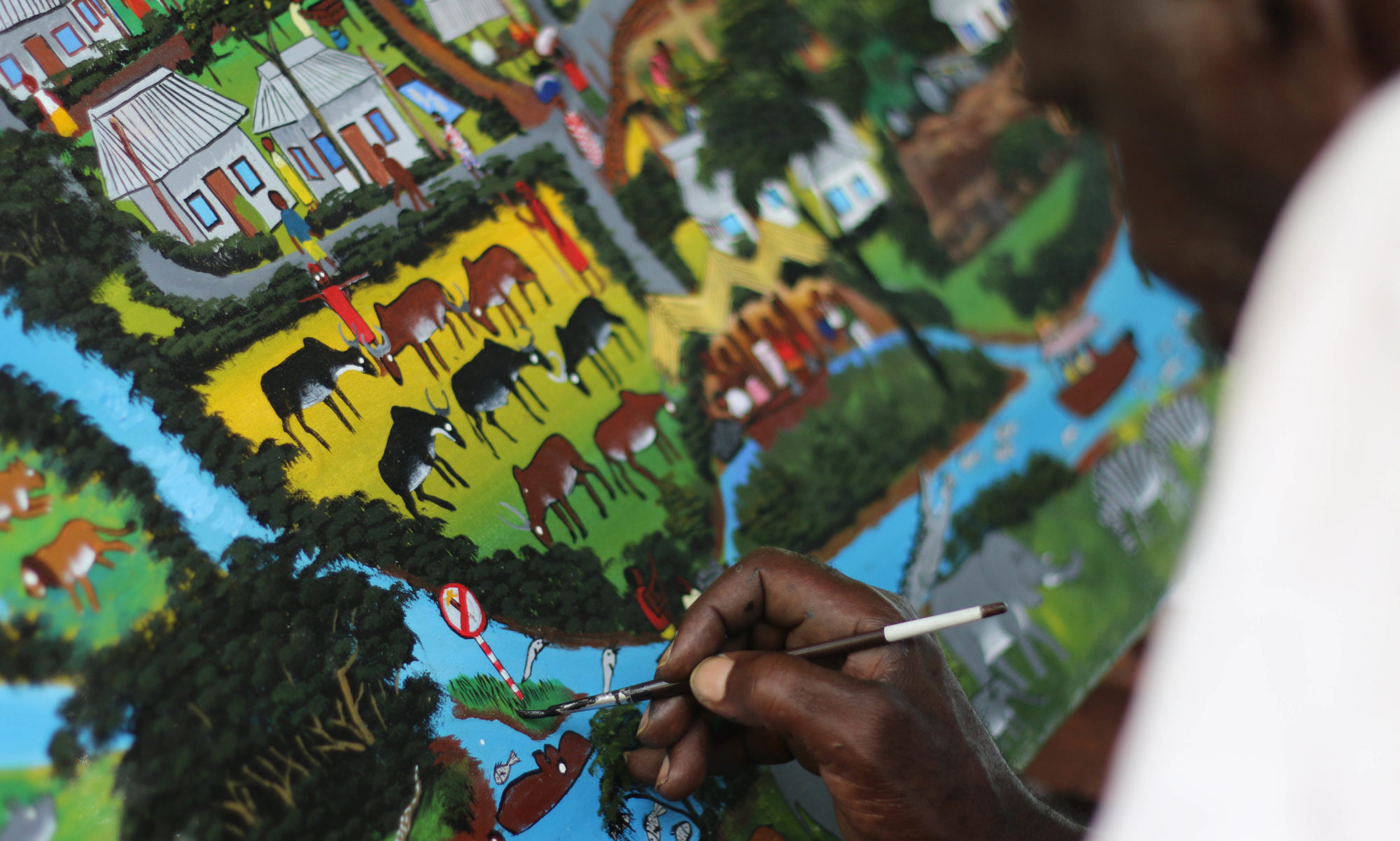I am currently based in Morogoro, Tanzania, at Sokoine University of Agriculture for my postdoc project “Visualizing the future – charting pathways for sustainable development with participatory art and scenario thinking”. The last couple of weeks have been a milestone for developing future visions for sustainable food systems in Tanzania, based on future visions of agroecological farming, sustainable livestock keeping, and farmer pastoralist collaboration in Mvomero District, Morogoro Region.

The idea of using Tingatinga illustrations to develop future visions with farmers and pastoralists was first developed in Kilombero Valley in 2016. Now I have taken the idea further by also using such illustrations as a tool for communicating future visions to other food system actors, in order to discuss how the entire food system can be re-designed to support the visions of farmers and pastoralists (i.e., the primary producers).

We initially held six focus group discussions with farmers and pastoralists (Maasai ethnic group) that originated from more than 20 villages. All participants have been trained in the “farmers and pastoralist collaboration” program by the NGO Sustainable Agriculture Tanzania (SAT), and have therefore started to practice agroecology and improved livestock keeping, while also learning how they can collaborate with, and benefit from, each other. An artist from Dar es Salaam (Joseph Mwalyombo) was with us during the focus group discussions and field visits to hear the stories, and see the environment, to make sketches of the future visions that emerged.

Before the workshop, we invited farmer and pastoralist representatives from each focus group discussion to come and meet the artist and see the paintings of the future visions. They were encouraged to add or clarify some of the content, and the artist kept painting throughout the workshop. At the workshop opening, the representatives used the paintings to describe the future visions to the other participants of the workshop (NGOs, agricultural extension officers, researchers, and small-scale businesses for bio-chemicals and chemical free storage). All participants of the workshop were invited due to their interest in agroecology and improved livestock keeping, and were carefully selected in order to develop visions of a future food system that can challenge the status quo (i.e., the conventional food system). At the end of the workshop, all working groups presented their future visions of a food system that supports agroecological futures, and what needs to change to get there. The plan after this, is to make a policy recommendation of ways forward that can help promote agroecological farming to spread in Tanzania.

